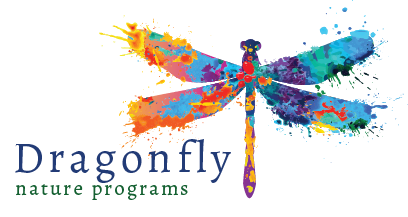“The land is where our roots are. The children must be taught to feel and live in harmony with the earth.”
My name is Lisa Tate and I have been teaching in an Early Childhood classroom for about 30 years. I feel like it has been a lifelong project of mine to find ways to connect children to our earth. I have used a variety of lessons ranging from planting seeds in cups to planting large gardens. Tending to animals such as fish in the classroom to larger projects such as working with cows and goats for 4H projects. We have looked at leaves and bark on trees and hiked in a forest with parents. I have used all of these activities to help the students feel a connection, love, and understanding of our planet earth hoping this will lead to a desire to care for the earth through actions and decisions.
This is our small trash bin for our large classroom.
It is important to know that I can get a little overwhelmed with big change, whether in the classroom or in life, so please note that where we are today in our ability to care for our environment and keep our “footprint” as light as possible has come through small changes made every year. We have made small adjustments in attitude and practice each year and continue to find ways to hone our care.
Wash cloths are used in our classroom to reduce our waste from paper towels used for drying hands and cleaning up spills.
One way that our classroom works towards caring for the earth is to limit our trash. To date our trash can is about 1 gallon. We empty it every other day. We use cloth hand towels to dry after washing our hands. These towels are purchased in bulk through Target or Amazon. The three Early Childhood classrooms in our school use cloth hand towels. One classroom has the children take turns taking the dirty hand towels home to be washed. Another classroom uses the school laundry daily to wash, and in my class my assistant and I take turns taking the laundry home. We all do what works best for us. We realize that we use lots of water to launder the clothes daily. But we hope that this practice instills reaching for a cloth towel at home instead of paper towels.
We also teach composting. This can be a bit tricky as dairy and meat do not go into compost. This leads to lessons on types of food. The other tricky piece is what to do with the compost. Compost piles, bins, and worm bins are possible solutions. Once again do what works best for you. One classroom in our school sends the compost home with different families to add to their compost.
Another way to keep the trash can small is recycling. We are recycling paper, plastic and glass. We have recycling bins in the classrooms, the teacher work areas and administration areas of the school. Children learn to question their throwaways and make decisions as to trash, compost, or recycling. They also see the school in general taking steps to reduce and recycle as a part of daily life.
All this said, I realize that I am fortunate to work in a private setting where I have the funds to purchase hand towels. The administration of our school is open to trying different things to help us in teaching and imparting the information necessary to connect children and their parents to the world. Our focus is academic achievement but also understanding our role as stewards of the earth. All of this allows me to work through many little changes with support and understanding. So I am sharing this knowing that your small changes may bring personal and professional challenges that I have not experienced.
My students are taught at the start of each school year what can and cannot be added into our compost bin.
Here are some suggestions for getting started:
Reach out and find like minded teachers in your school for support
Start small with pictures of nature in your room; ask parents to donate photos or calendars
Recycle
Look for books to read from the library
Talk to your students about producing less trash and ask them to brainstorm some ideas that your class could implement
Ask parents for donations of wash cloths
Teachers Pay Teachers is a resource that often has fun and easily reproducible activities
Small steps in time make a big difference! Good luck!
Lisa Tate works at the Montessori School of Durham where the educational theories of Maria Montessori are an inspiration ,which includes teaching students to love & care for the outside world!
Think before your toss. Our students have to make a decision about how to dispose of waste and in doing so we’ve really reduced the amount of waste we produce daily!



